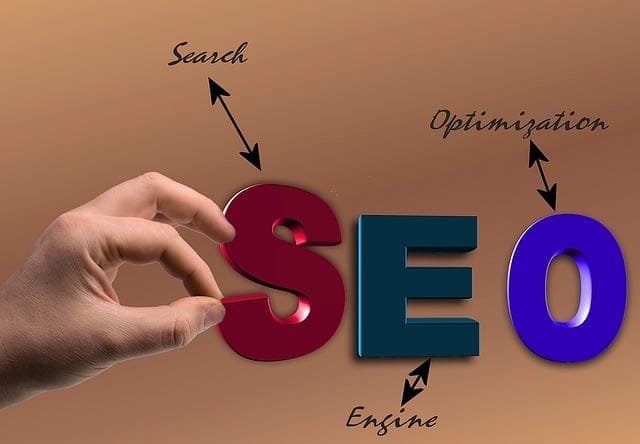Harnessing Technology for Sustainable Business Practices in 2024
The inclusion of technology into the organization’s activities is increasing. It aims to promote sustainable development and has become a new trend. This article examines the potential of IoT, AI, and blockchain technology. These technologies can reduce wastage. They can also increase energy efficiency and improve supply chain visibility. Companies can now meet their regulatory requirements through these technologies. They also become attractive to the growing green consumer market. This enables them to make profits while doing well.
In the modern business world, one has to be responsible and sustainable. Sustainable business practices integrate strategies that care for the environment. These strategies are socially responsible and economically feasible. It aims to reduce the harmful effects on the environment. It also improves society, allowing future generations to thrive without depleting available resources. By 2024, these practices were already in high regard. Businesses were beginning to appreciate their relevance due to shifts in market dynamics. Regulations also played a role, as did the general zeal for corporate responsibility.
Introduction to Sustainable Business Practices
Stakeholders see incorporating sustainable principles into corporate policies as crucial. This incorporation is viewed as an ethical obligation as part of expanding opportunities for doing business. Sustainable businesses find new market opportunities, strengthen their brand, as well as increase the purity of spirit of employees. Furthermore, such objectives may bring about a reduction in costs improving efficiency and cutting down waste. Organizations today must look beyond their inner objectives and aspirations. They should work towards achieving development goals. For instance, the Sustainable Development Goals (SDGs) of the UN are important. By doing so, they promote a just and sustainable environment.
Leveraging Technology for Sustainable Business Practices and Growth
To integrate holistic business strategies known as sustainable business practices, it is clear that technology is central. AI, big data analytics, and IoT are advanced gadgets. These tools help the organization control its environmental impact. They also rationalize resource consumption and improve business practices. Additionally, working systems can provide means to improve teamwork. Resources also make information more visible. This makes it more accessible to all the work group members. Looking further into the future, we see the importance of 2024 and beyond. Implementing technology to achieve corporate sustainability targets has become a strategy for most corporations. Competitiveness and business growth will shape who benefits from these markets. The marketplace is shifting towards sustainable and socially responsible practices.
The Impact of Innovative Solutions on Eco-Friendly Operations
Lately, there’s been a trend among organizations to invest more in technology that is more oriented toward their eco-friendly operations. This approach aids the promotion of eco-friendly practices. It significantly reduces the negative impacts on the environment. For instance, the application of clean sources of energy has become a common practice in most establishments. Solar panels and wind turbines are excellent methods for organizations to harness natural energy sources. This reduces their reliance on fossil fuels. It also cuts down on carbon emissions in general.
The systems that save energy also help in optimizing energy consumption. Today, organizations can use various modern technologies. These include smart sensors and advanced building management systems. They can better manage their electrical energy commerce. An adjustable and automatically operating HVAC system will help cut energy costs for businesses. It is based on actual occupancy and environmental conditions. This promotes sustainable practices.
Waste Minimization: Advancing Green Practices with Technology and Circular Economy
Waste minimization strategies are a second revolution in the promotion of green practices in business operations. The development includes waste management techniques such as automatic sorting machines and advanced recycling methods. These techniques help enterprises reduce the amount of waste produced. They optimize the usage of recycled materials. They also embrace the concept of a circular economy. Organizations can significantly decrease the amount of waste directed to disposal sites. They can also reduce their carbon emissions.

The advantages of the adoption of these novel practices are not limited to environmental concerns. The implementation of renewable energy and energy-saving technologies by enterprises is usually accompanied by lower operational costs in the future. In addition, the marketing of green ideals boosts the organization’s image among eco-friendly consumers. It also helps in building strong support from the stakeholders. When these businesses adopt sustainable practices driven by technology, they help maintain the ecological balance. At the same time, they build a sturdier economy.
IoT: Transforming Resource Management for Sustainability
The Internet of Things (IoT) is expected to be a crucial resource management technology for sustainable businesses. Organizations can incorporate IoT devices in different operational processes. This helps them collect and process a significant amount of data. Consequently, they make better decisions regarding resource use. This leads to the optimization of energy and water consumption. It also promotes waste minimization measures. These actions ensure that business processes align with sustainable development endeavors.
Real-time visibility is one of the technological advantages that the Internet of Things (IoT) offers in resource management. Smart sensors can keep track of energy consumption in the buildings. This gives the organization a chance to detect and remedy such an occurrence. For example, a manufacturing plant can use IoT technology to measure how much power each machine is consuming. This method helps expose energy-wasting machines that are not easily identifiable. Companies can use this information to change the working order of the equipment. They can also replace some of the equipment with energy-efficient ones. This approach helps companies cut their operational costs and reduce energy usage.
IoT in Water Management: Enhancing Efficiency in Sustainable Farming Practices
Additionally, various organizations are now integrating IoT technology in the management of water resources. Smart irrigation systems can utilize climate, soil moisture, and plant requirements to improve the efficiency of water in farming. For instance, a vineyard using IoT sensors can monitor the moisture levels of the soil. It can also track the grapes with the help of weather tracking. This ensures water is not wasted as well as the quality of grapes produced is high hence promoting eco-friendly farming.
Moreover, IoT solutions are turning waste management trends on their head. Firms can use smart waste management techniques by placing sensors in the waste bins. These sensors check the waste levels and schedule optimal collection times. This eliminates needless journeys made by waste management services. As a result, it reduces their fuel use. This is a journalist sustainable urban development provision.
There is no doubt that the adoption of IoT technology in resource management is disruptive. It points companies towards greener business models. As more organizations embrace the power of their IoT devices, they will be able to anticipate greater efficiency. They can also expect lower costs. Additionally, they will play a significant role in protecting the environment.
AI-powered Solutions for Efficient Operations
Lately, artificial intelligence (AI) has advanced significantly. This advancement offers organizations a rare chance to develop their processes. Importantly, this can be done without compromising the environment. AI-powered systems help enterprises manage resources more effectively. They eliminate unnecessary practices. These systems also allow businesses to make ecological decisions. One such benefit of AI is improving resource forecasting. On historical data, trends, and patterns are analyzed to ‘predict’ demand or resource requirements. As a result, as the business processes improve, so does the rationality of resource allocation. This not only prevents the wastage of raw materials. It also helps stop the negative effects on the climate caused by industries producing a surplus of finished goods.
Additionally, AI has a great influence on supply chain management. The implementation of such AI tools enables an organization to optimize its supply chains. It incorporates machine learning-based analytical systems. These systems are capable of processing data from multiple sources in real time. These systems can predict potential threats to the supply chain. They evaluate risks and propose other vendors. As a result, operations can still run without compromising on sustainability. AI enhances operational efficiencies throughout the supply chain. This leads to lesser carbon outputs. It results in improved routing in the transportation network and lesser use of resources.
AI-Driven Decision-Making: Boosting Efficiency and Sustainability in Business
Besides, AI promotes the enhancement of decision-making across several business functions. It provides statistics and data-based insights to executives. This information allows them to make strategic decisions on how to sustain innovations. For example, AI can study how energy is consumed in a building so that the business can use less energy. The use of such a strategy enhances operational efficiency and encourages the organization to be environmentally friendly.
As we head into the year 2024, integrating AI into business operations will be fundamental. This is especially true in the pursuit of enhancing sustainability. This is because this advancement encourages not only more efficient use of resources. It also inspires a completely new way to run businesses. This eventually leads them to adopt sustainable ways of operating.
Blockchain for Transparency and Accountability
Blockchain technology greatly promotes transparency. It also fosters responsibility in sustainable business practices. Essentially, a distributed computer network secures the system. It minimizes the risk of tampering and deception of legitimate sources. All interactions are recorded in a registry. This aspect is very useful when it comes to tracing supply lines. Companies gain a complete understanding of the origin of their goods. Therefore, they recognize the need to practice sustainable sourcing.
Consider the agriculture industry. Here, efficient blockchain-managed services can introduce a system. This system tracks crops from the farmers to the final consumers. The blockchain technology can be used in each supply chain component. These components include growing, processing, warehousing, and shipping. This enables the authentication of marketing statements such as ‘organic’ and ‘fair trade’. It also ensures that the ingredients used are ethically procured. Customers are increasingly wary about the products they buy. They especially concern themselves with the traceability of the products. Such systems can greatly improve customer loyalty to a brand. They also boost trust in the brand.
Blockchain for Sustainability: Ensuring Transparency and Accountability in Environmental Practices
In addition to that, the technology of blockchain can help adhere to environmental policies through tracking with the permanent archive of business operations related to sustainability. Businesses may show that they are serious about reducing their carbon emissions or cutting down on waste by registering details of their carbon footprint on the blockchain. This enhances corporate social responsibility as well as allows parties such as investors and lobbyists to monitor businesses with how well they sustain themselves.
To put it simply, the introduction of blockchain in business processes allows for a shift in how responsibility is understood within the concept of sustainable practices. Thus, due to this transparency, the reputation of the firm improves, and at the same time, it engages in environmental activities, which in the end helps the organization and society as a whole. This is particularly important, as we are progressing towards quite a sustainable economic model, and the focus on the enabling role of the blockchain in the management of business operations is increasingly gaining significance.
Corporate Responsibility and Stakeholder Engagement
Corporate responsibility (CR) has become fundamental in practicing sustainable businesses as organizations have come to appreciate the positive and negative effects of their operations on the environment and society. By the year 2024, concerns about ethics and sustainability have reached higher levels due to the need for corporations to behave more responsibly. Companies know too well that their stakeholders, customers employees investors, or society at large, demand that they are open and responsible in the management of their activities. This change in some of the expectations has put the need for organizations to maintain messaging about their sustainability coherence and effectiveness.
Leveraging Technology for Stakeholder Engagement and Corporate Responsibility
Technological advances are significant in encouraging the participation of various stakeholders. Thus, companies can teach everyone about their corporate responsibility, as well as other charitable activities, in a real-real-transformation of the traditional way of doing business, which has been achieved by ways of the development of social media and communication technology. Businesses communicate about their sustainability efforts, tell the story of their evolution, and engage the audience in back-and-forth communication. Therefore, when leveraging technology, businesses will be able to come up with a communication channel that does not only allow the sending and the receiving of information but also encourages the sharing of ideas and information back to the business which is beneficial in building trust and relationships with the stakeholders.
Additionally, businesses are now equipped with data analysis and customer relationship management tools to keep track of how stakeholders perceive them and modify their operations in response. Metrics around engagement can be evaluated by companies to gauge the success of their sustainability efforts campaign and make decisions for further actions. This data-oriented approach not only improves trends on corporate social responsibility. It also proves a willingness to hear and act on the concerns of stakeholders.
Scaling Corporate Social Responsibility through Technology: Reaching Global Audiences for Sustainable Impact
Technological solutions embedded in corporate social responsibility principles enable companies to scale their efforts and spread their messages far and wide. With the use of technology, businesses can reach out to and interact with an even wider range of interested parties, some of whom may be located in far-off or poorly-served regions. This is particularly important because organizations are faced with global problems like global warming, social injustice, and lack of resources. Tertiary education institutions are increasingly embracing technology as a driving force of change within organizations. In this way, businesses are accountable to their various stakeholders, and more importantly, strive to be sustainable.
Future Trends: Technology’s Role in Sustainable Business Practices beyond 2024
Envisioning the future beyond present times, one can safely state that technological advancements combined with sustainability will expand significantly. Some emerging trends will redefine business operations after the year 2024. Companies will always be looking for ways to improve their performance. They also aim to minimize the negative impact on the environment by integrating new technological developments. Facial intelligence will drive many of these changes. Machine learning will also lead this shift. These technologies will be implemented to automate certain processes. They will help manage and optimize logistic and resource flows. For instance, artificial intelligence processes gigantic datasets. It offers recommendations on the best way to deploy energy. This approach will invariably translate to lower costs and better resource management. Revision: Interior design in Los Angeles is changing. It now teaches us to look to the sky and not at the pencil bottom.
In addition, the growing prevalence of the Internet of Things (IoT) will also enhance organizations’ capacity to pursue sustainability initiatives. Organizations can gain insights regarding their impact on the environment by simply monitoring connected devices. This facilitates faster and better decision-making. This has the potential to drive growth in waste management. It also aids in energy savings. Thus, it enables firms to embrace more circular operational strategies focused on recycling and upcycling of raw materials.
Blockchain for Sustainability Reporting: Ensuring Transparency and Accountability in Supply Chains
One more tendency that is bound to gain traction is the enhanced application of blockchain technology in sustainability reporting and supply chain transparency. As clients grow more green-oriented, organizations must present plausible guarantees of their sustainable efforts. The blockchain can provide an incorruptible layer for compliance and responsibly sourced materials that will create more trust and accountability in the business sustainability efforts.
The aforementioned benefits also have detractors. The firm requires substantial funding for new equipment, systems, or technologies. Compliance issues also present challenges for the firm. Organizations can create an ethos of innovation and be proactive. By doing this, they can tap into emerging opportunities. This approach helps them remain competitive in the rapidly transforming environment. The current focus is on sustainable business models. Using technology strategically in this context will greatly help promote desired changes. It will support sustainability efforts concerning the environment on a planetary scale.







